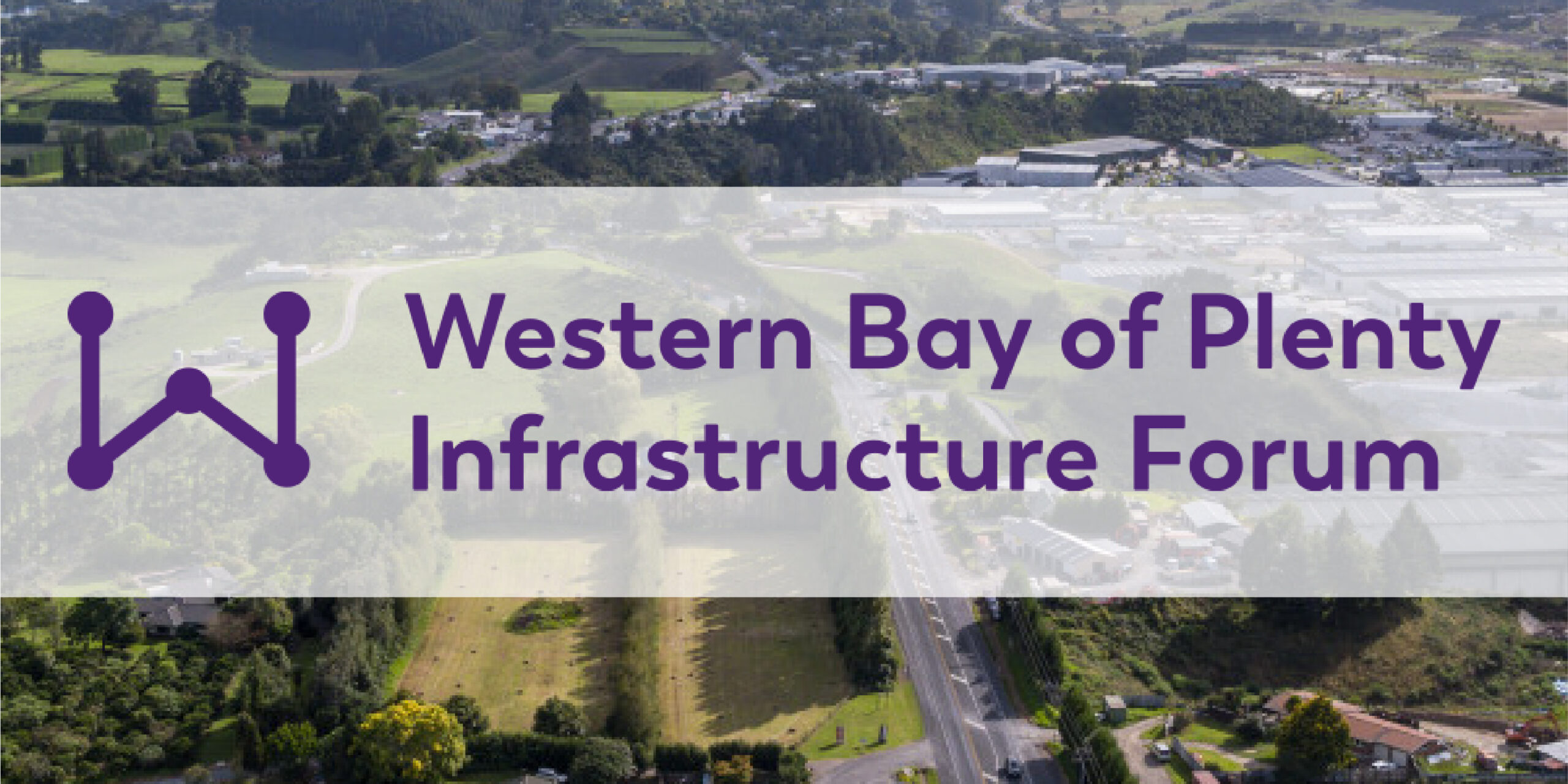Latest News

Source: Western Bay of Plenty Infrastructure Forum
The Western Bay of Plenty Infrastructure Forum has welcomed the National Party’s Transport for the Future plan, saying it goes some way to addressing the critical infrastructure needs of the region.
“Tauranga urgently needs investment into the SH29 Tauriko bypass to unlock housing, transport and economic development in the country’s fastest-growing city,” says WBOP Infrastructure Forum Chair, Nigel Tutt.
“Rapid population growth has put tremendous pressure on Tauranga’s existing infrastructure – with transport and housing struggling to keep pace. National’s commitment to a four-lane highway from Tauranga to Whangarei, and specifically State Highway 29 at Tauriko, is an important step in the right direction.
“SH29 is a chokepoint; it’s stopping the full potential of housing, manufacturing, transport, decarbonisation and exporting from being realised,” says Nigel.
“It’s also a vital piece of infrastructure investment in regional and national resilience for our economy and supply chains.
“We need to have robust discussions and commitments now from politicians to realise this critical infrastructure investment within the next few years.
“Every year we wait, the danger to our national supply chains grows, the infrastructure price tag grows, and the risk to our economic wellbeing grows.”
Tauranga’s population has grown by 72 per cent since 2000, putting immense pressure on existing infrastructure. SH29 investment would allow for 35,000 more homes over the next 20 years, unlocking 5000 more homes immediatelyunder existing development plans.
Bryce Donne, Tauriko Business Estate Director, says planned growth is the best way to realise the region’s full potential and contribute to national outcomes – with Tauriko West being identified as a key growth area for housing and industrial growth.
“New Zealand has a long history of poor infrastructure investment – we’re constantly behind. What we really need is a surplus of infrastructure, room to grow into future demand.
“The SH29 investment is a step in the right direction; it’s the right location that opens up investment through housing and employment land – we need homes, jobs and a roading network that supports productivity,” says Bryce.
“How we best pay for this is an entirely different conversation, but let there be no mistake, the investment is critical.”
Greg Pert, Director at logistics company Tranzliquid, agrees.
“The SH29 chokepoint isn’t just an irritation for truckers or an inconvenience for motorists; it’s a real barrier to our country’s productivity. Every minute a truck sits idle in traffic, we lose potential growth,” says Greg.
“The longer goods are in transit, the slower our economy moves. Lost time can never be regained, and its cost is high – financial loss, missed opportunities for development, and increased costs passed on to the consumer.
“The enhancement of our roading infrastructure shouldn’t be treated as an expense, but as an investment. We must marshal the resources needed to revitalise SH29 and our other vital freight corridors.”
Waka Kotahi’s proposed business case, presented in June, supports upgrades over a planned period up until 2048. It includes a new offline SH29 corridor for inter-regional traffic between Redwood Lane and Takitimu Drive, a new online six-lane SH29A corridor between Takitimu Drive and Barkes Corner, and widening of SH36 between Lakes Boulevard and SH29A, including dedicated bus lanes.
The Western Bay of Plenty Infrastructure Forum believes 2048 is too late, with the city already having the country’s least affordable housing and rental market, along with critical transport links within the city and to the Golden Triangle becoming increasingly fragile. They are advocating for urgent support for the SH29 upgrades.
About the Western Bay of Plenty Infrastructure Forum
The Western Bay of Plenty Infrastructure Forum brings together stakeholders from across the region, including business leaders, local government, and community representatives, to identify and prioritise infrastructure projects and advocate for investment.
The Forum is made up of the following members:
- Priority One – Nigel Tutt, Chief Executive Officer & Chair of WBOP Infrastructure Forum
- Ballance Agri-Nutrients – Shane Dufaur, Operations & Supply Chain
- Element IMF Limited – Bryce Donne, Director
- Employers and Manufacturers Association (EMA) – Brett O’Riley, Chief Executive and Joanna Hall, Senior Policy Advisor
- Port of Tauranga – Leonard Sampson, Chief Executive
- Tauranga Business Chamber – Matt Cowley, Chief Executive
- Tauranga Māori Business Association – Leone Farquhar, Chair
- Tranzliquid – Greg Pert, Managing Director
- Urban Task Force (UTF) – Scott Adams, Chair & General Manager, Carrus Corporation
- Zespri International – Michael Fox, Head of Global Public Affairs
